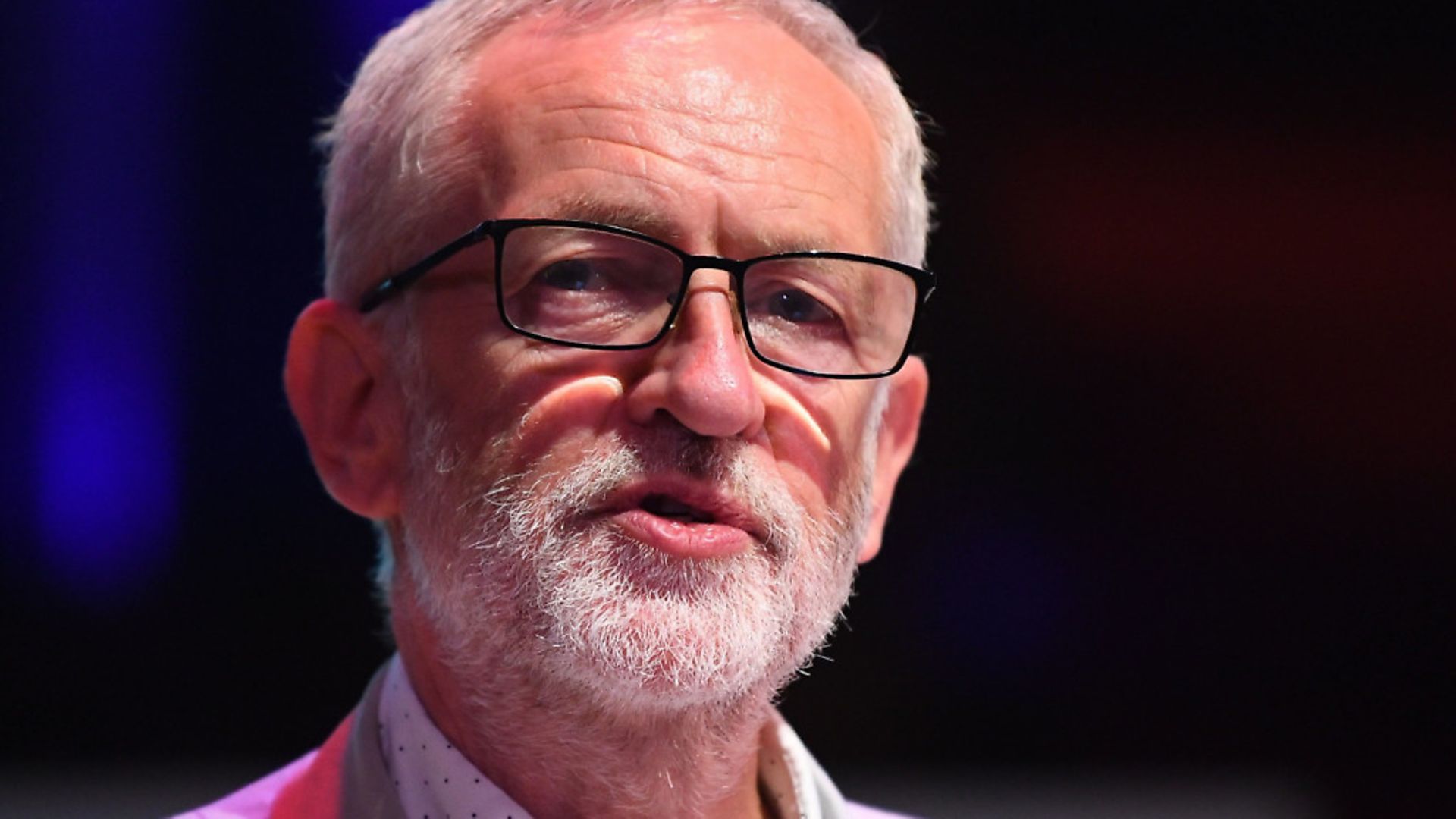
JAMES BALL on how Jeremy Corbyn is in a no-win situation when it comes to deciding his position on Brexit and the parallels this has with a training scenario in the TV series Star Trek.

In the Star Trek universe, anyone who would be the captain of a Federation spacecraft is forced to go through a training scenario known as ‘Kobayashi Maru’ – a no-win situation.
The exercise is designed to be entirely unwinnable, not an exercise in strategic genius, but instead a means to see how a cadet would react when staring certain defeat – and likely death – in the face.
It seems possible we are living through Jeremy Corbyn’s very own Kobayashi Maru on Brexit – if only he or the people around him were willing or able to see it.
In fairness to Labour, it was not difficult to see the logic of their Brexit position when they first adopted it. More than most parties, their voter base was divided between Leave and Remain (though the latter always made up a comfortable majority of their vote), and so trying to find some compromise position was only sensible.
The difficulty of this became that Labour are now the last people offering unpalatable compromise to a country increasingly unwilling to accept it: on the Remain side, support for a ‘soft Brexit’, or leaving under a deal, has eroded, while support initially for a second referendum and then for outright revocation has surged.
Meanwhile, what ‘Brexit’ means for Leavers has hardened to such a degree as to become unrecognisable from the time of the referendum. During the 2016 vote, even many leading Leave advocates thought it inconceivable to leave the single market or customs union. Now, remaining in either is seen by almost all Brexiteers as totally unacceptable, a betrayal of the referendum result.
Such is the furore around Brexit that for some of its supporters and advocates, nothing short of an actual no-deal Brexit will do – though they would quickly cry foul if they ever saw what such a prospect would actually entail.
Labour is therefore left in the impossible position of trying to appeal to Brexiteers against a political atmosphere dominated by Boris Johnson and Nigel Farage. Brexit fever has got so crazed that even Jeremy Hunt, once seen as a Remain-leaning Conservative moderate, is desperately setting out how he would pursue a no-deal Brexit within months, as part of his doomed bid to become our next unelected prime minister.
Given the overwhelming majority of Labour MPs, their members, and their voters support Remain, even trying to compete with Leavers on Brexit is clearly a no-win scenario. The party simply cannot go mad enough on Brexit to compete with either the Brexit Party or, now, with the Conservative mainstream.
The obvious answer, then, seems to be to wholeheartedly support Remain. It’s certainly what the party’s supporters and frontbenchers have been urging for quite some time, and seems to offer an easy way out: if the door to Leave is closed, why not seize upon Remain?
Part of the problem is simply how long Labour has been flirting with the idea of supporting a second vote, and backing Remain in the instance of holding one. Pro-Europeans have been told time and again the party was about the back this option, only for it to emerge, once the dust had settled, that the policy wasn’t, in fact, to do this. Whether it’s Corbyn’s own ideology, that of those around him, worry from 25 or so seats apparently vulnerable if Labour backed Leave, or just political vacillation, something has held Labour back time and again from embracing Remain.
Other parties have not shared this reserve. Remain voters have no shortage of options to pick from: the Liberal Democrats are resurgent, the Greens have had the best electoral performance in their history, and the SNP and Plaid Cymru both enthusiastically support Remain.
Labour’s milquetoast proclamations about supporting a second referendum look weak by contrast – especially given they lay rise to the possibility Labour would enter government, pass a deal much like the one agreed by Theresa May and then supposedly open it up to a referendum, in which many of their own supporters would vote against the agreement. If it doesn’t ring true to them, it won’t ring true to voters.
All this is now validated by polling – with some caveats. YouGov recently asked voters a series of hypothetical questions about how they’d vote under certain political leaders and certain policy positions. Hypothetical votes are always a little unreliable – for example, historically British voters have been a lot more willing to vote for higher taxes to fund more public spending in theory than at the actual ballot box.
However, the polling found that if Labour stuck to its current position in its next general election manifesto, we would face the prospect of the next Lib Dem leader becoming prime minister.
If Labour moved its position in alarm at that prospect and wholeheartedly backed Remain, though, it still doesn’t find itself topping the polls – as too few Remainers would be convinced. In that scenario, the Conservatives would win. Only under a new leader, and with support for Remain, would Labour face a chance of winning.
Unlike the true Kobayashi Maru situation, British politics is too volatile to totally rule out a Labour win – the electoral system is facing four parties virtually neck-and-neck, a prospect first past the post voting was not designed for, and behaves completely unpredictably under.
But as he stands on the bridge of the Labour ship, Corbyn must surely be starting to get some dark premonitions. He may find out what it’s like to lose, humiliatingly, sooner than he thinks.










